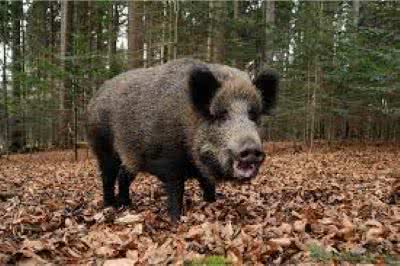Signification du mot wild en français
Que signifie wild en anglais ? Découvrez la signification, la prononciation et l'utilisation spécifique de ce mot avec Lingoland
wild
US /waɪld/
UK /waɪld/

Adjectif
1.
sauvage
living or growing in the natural environment; not domesticated or cultivated.
Exemple:
•
We saw a herd of wild horses galloping across the plains.
Nous avons vu un troupeau de chevaux sauvages galoper à travers les plaines.
•
The garden was overgrown with wild flowers and weeds.
Le jardin était envahi de fleurs sauvages et de mauvaises herbes.
Antonyme:
2.
sauvage, déchaîné, fou
uncontrolled or unrestrained.
Exemple:
•
The crowd went wild when their team scored the winning goal.
La foule est devenue folle quand leur équipe a marqué le but gagnant.
•
He has a wild imagination.
Il a une imagination débridée.
Antonyme:
3.
sauvage, désert, inculte
denoting a place that is uninhabited, desolate, or uncultivated.
Exemple:
•
They ventured deep into the wild mountains.
Ils s'aventurèrent profondément dans les montagnes sauvages.
•
The explorers discovered a vast, wild landscape.
Les explorateurs ont découvert un vaste paysage sauvage.
Antonyme:
Nom
nature sauvage, désert
an uncultivated or uninhabited region.
Exemple:
•
They decided to explore the great wild.
Ils décidèrent d'explorer la grande nature sauvage.
•
Survival in the wild requires special skills.
La survie dans la nature exige des compétences spéciales.
Antonyme:
Adverbe
follement, sauvagement
in a wild or uncontrolled manner.
Exemple:
•
The children ran wild in the park.
Les enfants couraient follement dans le parc.
•
His hair grew wild and unkempt.
Ses cheveux poussaient sauvagement et étaient en désordre.
Antonyme: